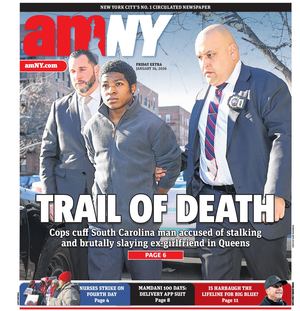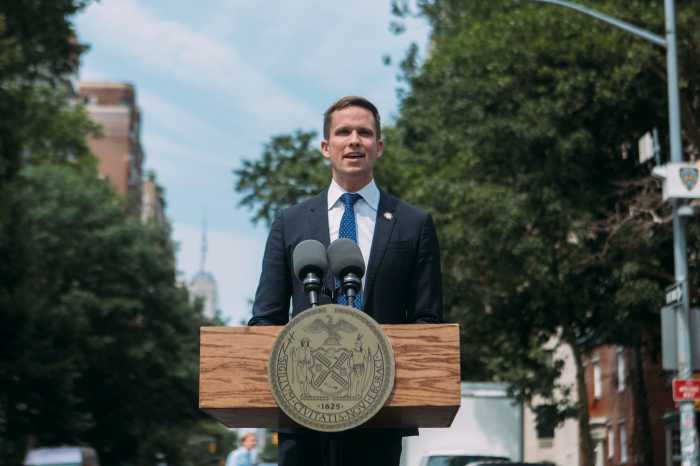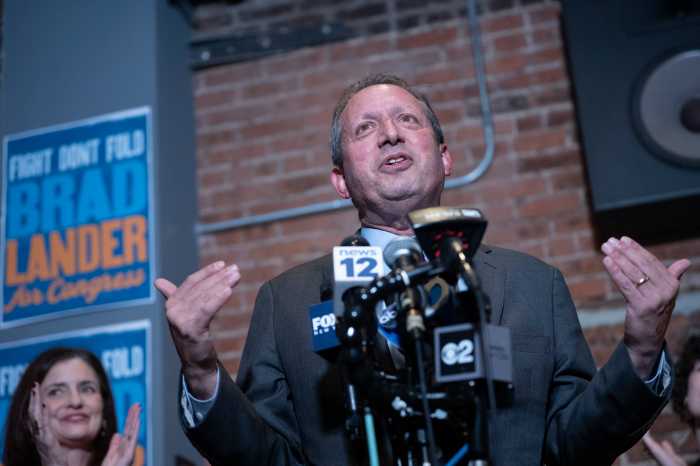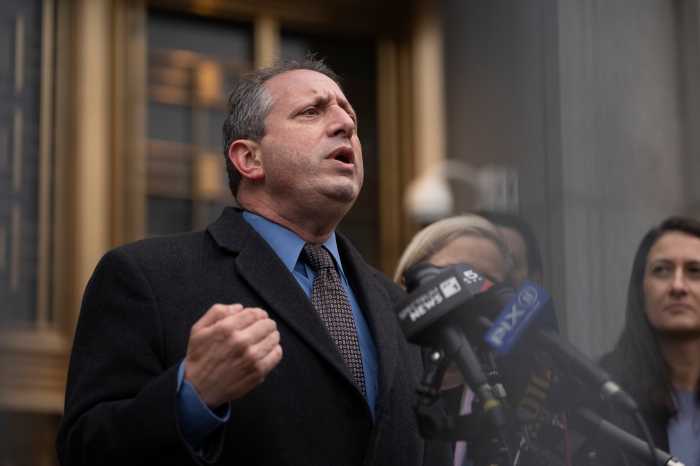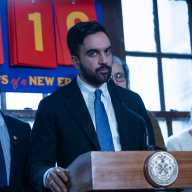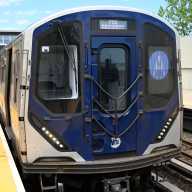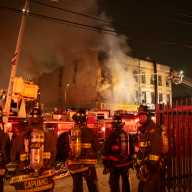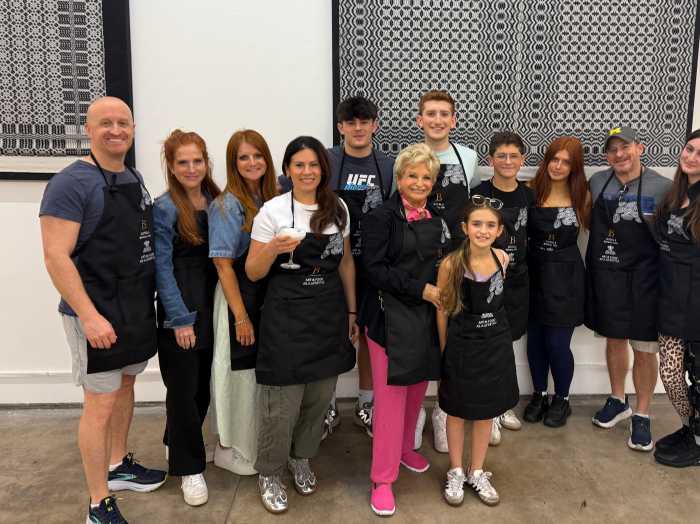-
 Bill de Blasio, 56
Bill de Blasio, 56
Party: Democratic
Current role: Mayor of New York City
Brief bio: De Blasio was born in New York City on May 8, 1961. He began his political career as a junior staffer for former Mayor David Dinkins after graduating from New York University and studying at Columbia University’s School of International and Public Affairs. De Blasio then went on to serve on the City Council before being elected as public advocate, a position he held for three years. He was elected mayor of New York City in November 2013 and was sworn into office on Jan. 1, 2014.
On the issues:Homelessness/housing: During his tenure, the mayor created a homeless outreach program, called HOME-STAT, with the goal of bringing people off the streets and into shelters. So far, 750 New Yorkers have been transitioned into shelters, according to de Blasio’s campaign. Back in February, de Blasio proposed opening 90 new shelters across all five boroughs over the span of five years as part of his plan to curb the homeless crisis. The plan also included the promised elimination of housing homeless residents in hotels by 2023. With the number of people living in city shelters on the rise since taking office, the mayor has been criticized for his approach to homelessness.
Jobs and the economy: De Blasio’s current administration unveiled an initiative in 2016, LifeSci NYC, that aims to bring in 16,000 new biotechnology jobs to the city through tax breaks for labs and research firms. The initiative is part of the mayor’s overarching plan to create 100,000 jobs over 10 years. So far, the city has seen 300,000 new jobs added in de Blasio’s first term, according to his campaign.
Transit: The mayor often touts the successes of his Vision Zero traffic safety initiative – which his campaign says has reduced traffic deaths by 23 percent since 2014 – his plan to fix the subway’s crumbling infrastructure has been met with mixed reviews. Following a summer filled with terrible commutes, caused by everything from track fires to derailments, the mayor announced a proposal to fund the modernization of the subway system by taxing the city’s wealthiest earners. The so-called millionaires’ tax would also create enough funding for 800,000 half-priced MetroCards for low-income New Yorkers – an initiative that has been pushed by some transit advocates in the face of rising subway fares. Some transit advocates, however, prefer congestion pricing – including tolling currently free East River bridges – as a more sustainable way to generate transit funds. De Blasio also helped launch the new NYC Ferry system in 2017, bringing a new transportation option to places like the Rockaways and Astoria at the same cost as a subway ride.
Education: One of de Blasio’s shining achievements in his first term as mayor was the launch of universal pre-kindergarten in New York City. Currently, about 70,000 4-year-olds are enrolled in full day pre-K, per his campaign. Up next: The mayor wants to make full day early childhood education available for 3-year-olds across the five boroughs. The city’s public school system also saw the highest recorded graduation rate in 2016, at 72.6 percent.
Crime/criminal justice reform: De Blasio’s administration was involved with the passage of a package of bills, known as the Criminal Justice Reform Act, in the City Council in 2016. The act, among other things, allows police officers to issue a civil ticket for many low-level, nonviolent offenses. De Blasio also recently proposed a 10-year plan to shutter the scandal-plagued Rikers Island facility. The complex would be replaced by a series of smaller jails placed in each borough, according to de Blasio’s administration. On primary day, several activists who want to see Rikers closed heckled the mayor outside of his Brooklyn polling site, demanding that he close the jail faster.
” data-id=”112979078″ data-link=”https://www.amny.com/wp-content/uploads/2017/01/image-54.jpg” class=”wp-image-1.12979078″/>
Photo Credit: Jeff Bachner -
 Sal Albanese, 68
Sal Albanese, 68
Party: Reform Party (previously ran as a Democrat in the primary election)
Current role: Former city councilman and public school teacher
Brief bio: Albanese was born in Calabria, Italy, on Aug. 29, 1949, and immigrated to Brooklyn when he was 8 years old. After graduating from John Jay High School in 1967, he received his bachelor’s degree in education from CUNY York College and went on to earn an master’s in Health Science from New York University and a law degree from Brooklyn Law School in 1990. Albanese worked as a city public school teacher for 11 years before he won a City Council seat in 1982. He served four consecutive terms on the City Council. This is his third time running for mayor of New York City.
On the issues:Homelessness/housing: Albanese says he would build more affordable housing, but doesn’t specify where on his website. He says he would also launch a fund that would go toward homeless prevention services and supportive housing, rather than shelters. Additionally, he wants to “reform and strengthen NYCHA” by fast-tracking repairs, reducing crime and ending the system of double-taxing residents for services.
Jobs and the economy: The former councilman says he would work to pass the Small Business Jobs Survival Act, which would give owners of small businesses the right to a 10-year lease with equal negotiation power as the landlord, end the process of landlords “passing on” their property tax expenses and end unreasonable rent increases.
Transit: Albanese advocates for expanded bus service, a “more equitable tolling formula” and funding the MTA through the personal income tax already collected. He says he would dedicate 0.3 percent of the personal income tax to the MTA. In regards to tolling, Albanese supports the MoveNY plan, which advocates for congestion pricing.
Education: The former public school teacher calls for reforming the way the city recruits, trains and supports teachers, including “more rigorous student teaching experience, creation and expansion of immersive internship programs, and regular classroom feedback.” He also wants to institute a new curriculum that focuses on technology, engineering and computer science and create “pediatric wellness centers,” where teachers, psychologists and doctors would work with newborns to 3-year-olds to prepare them for school.
Crime/criminal justice reform: Albanese advocates for more community policing. He says he would make sure there are enough officers and detectives at all precincts to ensure crimes are investigated the same way in all neighborhoods.
” data-id=”114339387″ data-link=”https://www.amny.com/wp-content/uploads/2019/10/8330_image.jpg” class=”wp-image-1.14339387″/>
Photo Credit: Charles Eckert
New Yorkers are heading to the polls Tuesday to decide who will be their next mayor.
Incumbent Mayor Bill de Blasio easily beat a number of candidates vying to unseat him in the Democratic primary in September. But de Blasio isn’t without competition, even with a landslide primary win.
Republican challenger New York Assemb. Nicole Malliotakis has come out swinging against de Blasio, taking him to task on everything from reports that he takes naps in his office to his campaign practices in the 2013 mayoral race. Independent Richard ‘Bo’ Dietl, a former NYPD detective, has painted de Blasio as a corrupt politician who hands out favors to campaign donors.
The three candidates battled it out in the final general election debate on Wednesday, with plenty of jabs over policy to go around.
Mike Tolkin and Sal Albanese, who ran against the mayor in the primary and were not invited to the debate, will challenge him again under the Smart Cities and Reform parties, respectively.
Despite his rivals’ criticisms, de Blasio won over 61 percent of likely voters in a Quinnipiac University Poll released in October. Malliotakis had 17 percent of the voters polled, while 6 percent said they would vote for Dietl and 8 percent were for Albanese. Tolkin was not included in the poll.
Get to know more about the mayoral hopefuls and where they stand on key issues.
